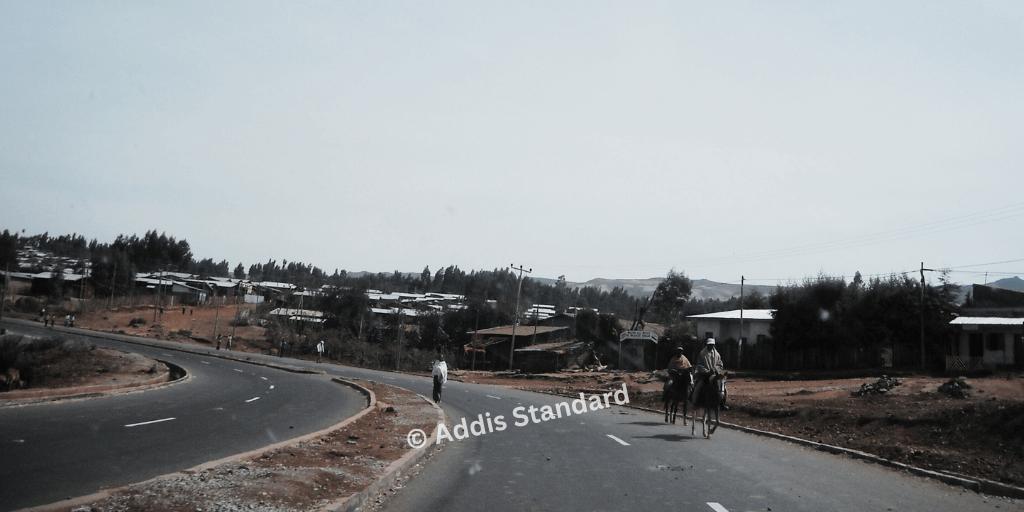Africa-Press – Ethiopia. October 11, 2025 3 minutes read Addis Abeba – The Ethiopian Human Rights Commission (EHRC) has raised grave concern over the growing restrictions on people’s freedom of movement across several regions, citing abductions, road closures, checkpoints, and curfews that have made travel increasingly dangerous and obstructed basic social and economic life.
In a statement released on today, the Commission said it has documented extensive violations of the right to movement between April and September this year through monitoring and investigations in the Amhara, Benishangul-Gumuz, Gambella, and Oromia regions.
The findings reveal a troubling pattern of insecurity and restrictions imposed by both armed groups and government forces.
“The right to freedom of movement is being jeopardized in the areas where monitoring and investigation were conducted,” the EHRC stated, pointing to curfews, checkpoints, road closures, and attacks on travelers. The Commission said these measures have “resulted in violations of the rights to life, bodily integrity, and property security” and have severely affected “the social and economic activities of the community by disrupting daily routines and limiting access to social services.”
According to the report, several key roads, including those connecting Assosa, the capital of Benshangul Gumuz region, to Addis Abeba and Kamashi of the region to the Oromia Region, remain closed due to threats by armed groups. “The closure has persisted until the completion of this report,” the EHRC said, adding that “the occasional journey under the escort of government security forces is causing significant hardship to the public.”
The Commission documented multiple cases of abductions and killings on public roads. In April gunmen abducted around 40 passengers traveling from Adama to Chole and shot one person attempting to flee. In East Wollega Zone, an armed groups abducted six travelers and killed one who tried to escape, demanding ransoms of up to 200,000 birr per person. Similar incidents were recorded in Arsi, West Guji, and North Gonder zones, where civilians, civil servants, and humanitarian workers were attacked or abducted.
In one incident in August, three Ethiopian Red Cross staff members were abducted in North Gonder while delivering an ambulance. One of them, Honelign Fantahun, died from injuries sustained during beatings and exposure to cold after a ransom of 400,000 birr was paid for their release.
The EHRC also reported government-imposed road closures and curfews that have further curtailed civilian mobility. Roads such as the Mekane Selam–Merto Le Mariam and Adet–Mota–Bichena routes, in Amhara region, have been closed for months, while curfews in Metekel Zone, Benishangul-Gumuz, restrict movement from 8:00 p.m. to 6:00 a.m. In Bati town, in Amhara region, the administration imposed an indefinite curfew, banning three-wheel Bajaj movement from 6:00 p.m., which the EHRC said has negatively affected “pregnant mothers, patients, and the general daily activities of the residents.”
“The cumulative effect of these restrictions, by both state and non-state actors, goes beyond the right to movement and exposes victims and their families to numerous human rights violations,” the Commission warned.
EHRC Chief Commissioner Berhanu Adelo urged authorities to take “urgent corrective measures” and ensure accountability. “The government should deploy sufficient security forces on roads frequently subjected to attacks, abductions, looting, and destruction of property,” he said. “It should re-examine the necessity of roads that have been closed and checkpoints that have been imposed for prolonged periods… and ensure that future measures comply with human rights principles of strict necessity and proportionality.”
He further called for “a full investigation into the crimes and human rights violations committed in connection with this issue to ensure accountability and deliver justice to the victims,” while urging non-state armed groups to “refrain from criminal activities that endanger civilians’ right to move and carry out daily activities.”
Freedom of movement, guaranteed under the Ethiopian Constitution and international human rights treaties, can only be “fully and meaningfully implemented when conditions are created for people to move freely, peacefully, and without undue restrictions.”
For More News And Analysis About Ethiopia Follow Africa-Press






